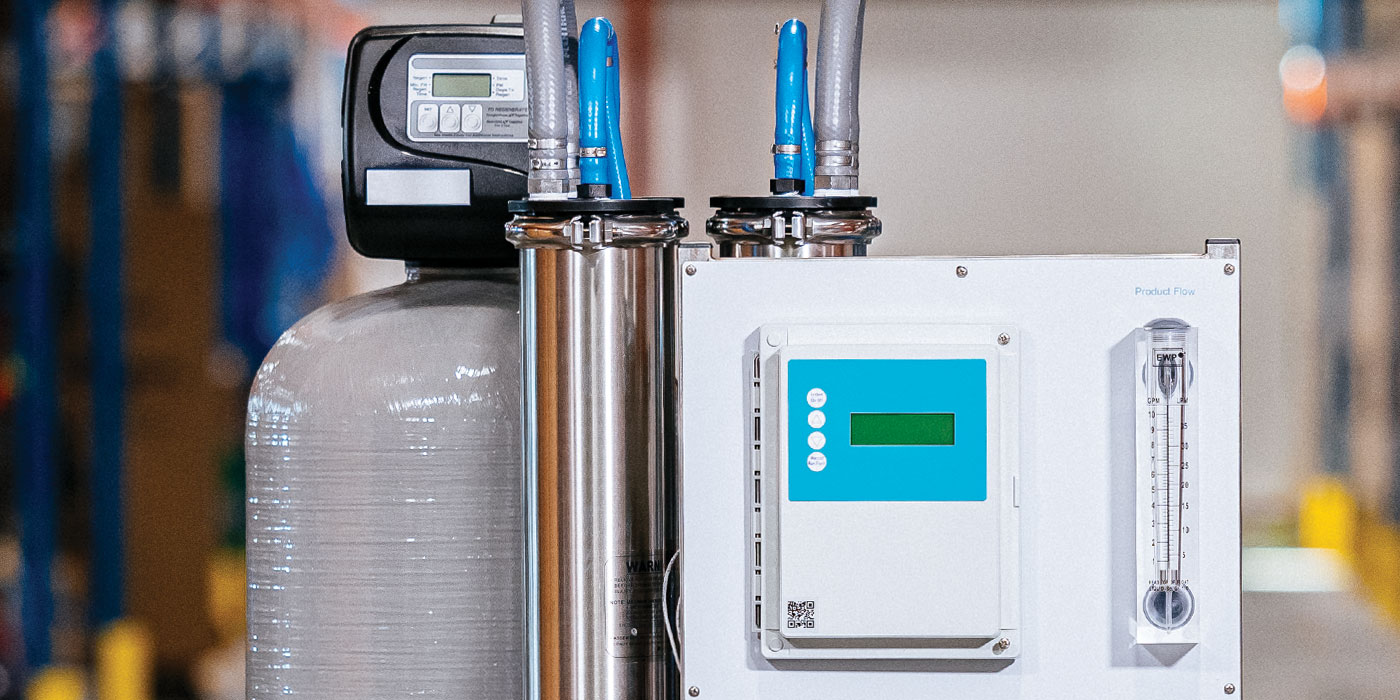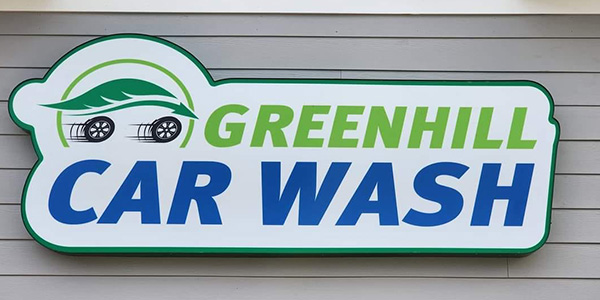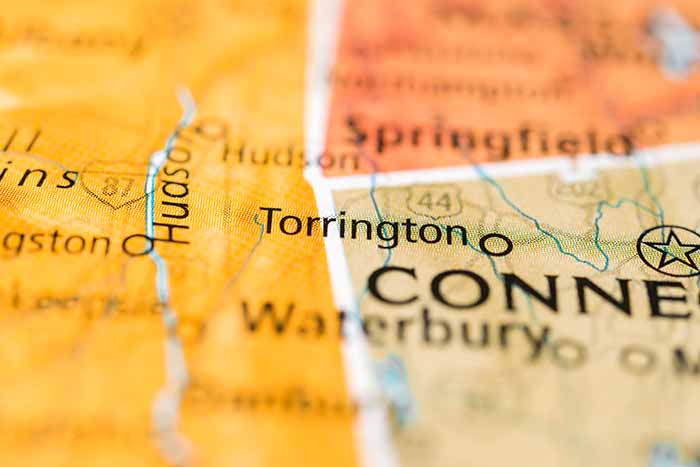With the recent explosion of interest from private equity firms — often backing large chains — in purchasing carwash locations, some operators are constantly fielding calls with requests to sell. But, if you’re on the fence about selling your business, what would help you determine whether or not to sell it?
No time to read to this article? Listen to it instead!
The state of private equity
“Private equity has ownership involvement in [approximately] 3.5% of all tunnel washes in the U.S.,” says Harry Caruso, founder and CEO of Car Wash Advisory.
To put a figure to that number, Jeff Pavone, principal and partner at Commercial Plus LLC and CP Capital Advisory Services, estimates that just under 1,000 tunnel washes are currently owned by private equity institutional investors.
While that doesn’t sound like a lot, these numbers are steadily growing, and Pavone estimates that today’s fragmented carwash market will have far fewer players in the not-so-distant future. The industry is heading down a road that will feature large-scale regional chains controlling a more significant portion of the market than one-off operators, unlike today.
“I think in five years, you’re going to find that consolidation has just started. We’re seeing really significant interest from well-capitalized private equity groups, and they’re not in it to have 50 carwashes or 100 — they’ll want a lot more over time,” Pavone states.
Among investors, there’s currently an aggressive appetite for express carwashes, specifically, and the experts we interviewed cited several reasons for it:
- Carwash businesses have proven to be scalable.
- Monthly memberships provide reoccurring revenue.
- There is a low labor cost associated with express washes.
- Carwashes are becoming a more institutionally investable asset class due to advances in technology that are decreasing financial mutability.
- The cost of capital is currently low.
- There is a heightened demand for brick-and-mortar stores not affected by the internet.
- Ride sharing is now being viewed as favorable to the carwash industry.
“The extraordinarily high levels of fragmentation in the industry attract private equity, but that characteristic has been eternal,” Caruso explains. “Fragmentation is more a reason of their involvement in general and less so a new driver of the more recent surge in their involvement.”
Leveling the playing field
If you are competing with a private-equity backed chain or find that you soon might be, don’t panic. You can still survive.
First things first: If you don’t already have an unlimited wash club, you need to get one. “Running an unlimited program is often seen as a way to drive more revenue, but it is also an effective way to block out competition,” says Greg Snow, marketing manager for Washify. “If customers are enrolled in an unlimited program, they are not likely to visit other carwashes. By offering [an unlimited wash club], established operators can lock in business with their customers and keep them away from new carwashes entering the market.”
But, if you’ve stayed ahead of the game and already implemented a program, then what?
First, you need to make sure you are well represented in your market. In other words, you need enough locations to be able to compete with a chain, if possible.
Consider this: If you find yourself in a hot market surrounded by some really strong, regional players (Phoenix, for example), you’re going to have a problem if you only have one, two or three locations. After all, these larger chains, which may have a presence of up to 20 locations in a single metro market, have unlimited wash clubs that patrons can access at any number of locations. If your members only have a few locations to choose from, the inconvenience is bound to do you harm in the long run.
Even yesterday’s “second-tier markets” are no longer “second-tier,” according to Pavone. Private equity is swooping in to claim what it can in several Midwestern markets, for example.
Of course, it is not enough to just have a handful of carwash locations — these sites have to be quality locations as well. If you can put out a good product and you have really strong customer service, then customers will still come.
“[Private equity’s] advantage is money, but if you have enough locations and you’re really running great customer service, you can compete, because it still comes down to taking care of the customer,” Pavone affirms.
Why should you sell?
Private equity is aggressively finding businesses like yours. No doubt that if you’re an express operator, you’ve likely already been called by companies looking to purchase your carwash. If you’re not ready to sell, there’s no problem with that. Selling a carwash is a very personal and serious decision.
“The right time to sell will be totally dependent on the goals of the owner; some business owners are seeking an exit strategy from day one while others hope to run the carwash until they retire,” Snow states.
However, if you’ve had even a thought about potentially selling your business lately, now is the time.
While the economy is currently strong and the market is hopping, business owners must always keep an eye on the horizon. According to Pavone, chances are the U.S. is more than likely heading into a recession in the coming years, and credit and financing will be more difficult to come by. Pavone also feels that valuations are at or near their peak, and he doesn’t see them moving much more than where they are today. Therefore, he suggests that if you are planning to exit the market in the near future, it’s probably best to start exploring your options today.
“Because in a year or two from now, if the market slows down, [you] may not have that opportunity for another few years,” Pavone warns.
In the end, whether you sell or not because of the economy is based on your tolerance. The Great Recession is still at the forefront of many seasoned operators’ memories, but for new operators, the realities of what could happen in a downturn might still be vague concepts. Consider that in a recession, signing up memberships can be more difficult, due to lack of disposable income, and you may even lose memberships. In addition, many owners take on a lot of debt to operate carwashes, and they’re highly leveraged, so you need to have the ability to analyze your financials and make sure you can stand for the long haul if there is in fact a market slowdown.
In addition to watching the economy, you also have to watch your market. “It will be harder to sell a carwash in a saturated market that has many competitors nearby, so it is best to sell before too many large chains move into your market,” Snow states. “As population grows, even more remote areas will become developed and have additional retail/residential areas.”
Furthermore, because these larger chains have great amounts of capital and resources at their disposal, they will continue to be able to invest in selling memberships, training, marketing, advertising, hiring and more at a rate that mom-and-pop operators just can’t compete with. In other words, the big will keep getting bigger.
“We’re seeing it already. There’s more of a disparity at the bottom line from what the larger chains are able to get out of a location versus a ‘mom-and-pop’ entity. And that’s because the carwash business is much more sophisticated than most people give it credit for,” Pavone notes.
Furthermore, an economic downturn will affect a single operator’s chances of expansion far more drastically than it will a private-equity-backed chain, given that credit will be harder to come by. However, since these chains will still have access to capital, they will be able to take advantage of the economic situation and continue to grow at a cheaper rate.
In addition, Pavone states, selling now may allow you to “take some chips off the table.” Carwashing has created a lot of wealth in recent years, and most carwash owners have a majority of that wealth invested in the carwash industry. Selling could give you an opportunity to diversify.
What makes you attractive?
If it turns out that you do want to sell, you can trust that there will be no shortage of interest — provided that your carwash has a number of factors running in its favor.
“The carwash community is a tight-knit group, and word spreads fast, so many owners could sell to another owner before they even list the site in a public forum,” Snow notes.
While we’ve already hinted at some qualities of a carwash that buyers find attractive, here are some additional points our experts noted:
- Being a leader in your market
- Having a handful of locations (i.e. being a proven, scalable business)
- Having solid financials, including a large unlimited program with a steady base or even a profitable detailing business
- Having a strong management/staff infrastructure that plans to stay on
- Owning your land versus leasing it
- Having strong branding and customer experiences.
None of these points are the “be all/end all,” however. For instance, the larger players, such as Mister Car Wash, have the resources to put in new teams and management if your team does not wish to stay on after the sale. However, private equity groups just entering the market like to know that the team will stay on with the carwash, since they do not come with that knowledgeable management in tow.
On the other hand, if your carwash is not proving as attractive as you’d like it, be warned that there are no real “quick fixes,” according to Caruso. The idea that there are is the largest misconception in the industry, he believes.
“Owners can’t really ‘boost’ their chances through quick fixes,” Caruso states. “Private equity firms are pro-forma buyers, meaning nine out of 10 times, they are purchasing washes based on what they expect the wash to do in performance (as opposed to what it currently does). It is surely true that current performance can deter interest from a high level on initial searches, but given the current demand in the market, it is the immutable foundation you have at your wash in terms of location, demographic and local competition that a private equity or outside investor is looking at.”
Tips for sellers
If you’ve decided to sell, all our experts agree on the first thing you should do: find an experienced carwash advisor. If you’re already getting calls from private equity, you already know you’ve garnered interest from at least one party. An advisor will be able to go to market with, say, 20 different groups at no risk to you. By putting yourself in front of a pool of potential buyers, you’ll create a competitive landscape to enhance the value of your carwash in the market, because naturally, you want to generate as much value as possible from the sale.
At the same time, different groups will offer different structures for a transaction. It could be that you only sell a minority of your chain, a majority stake or even all of it. Having that flexibility will allow you to find the offer that best works for you, Pavone says.
“Most deals contain a combination of cash, rollover equity, contingency payments and even additional performance-based earnouts,” Caruso explains. “The key is to step back, determine what your goals are ‘in a vacuum’ and then approach the offers with the mind-set of determining whether any of them fit your goals, and if so, which offer fits best. The answer may be none — and that is fine. The biggest mistake a seller can make is to compare or accept offers without completely understanding what the non-cash components of the offers are (such as the true implications of the rollover equity portions).”
In addition, you’ll also be able to meet with multiple parties to decide who best fits with your company’s culture.
Finally, when looking over these potential buyers, Snow adds, make sure they have their processes together, especially if this is their first wash purchase. “You don’t want to go down the road with someone who begins to understand the work involved in carwashing and has second thoughts — that’s just a waste of everyone’s time,” Snow states.
But what if you don’t want to sell? What if you have managed to grow a chain five to eight locations strong, for instance, and you want to continue to grow on your own? It’s still very possible, Pavone notes. An advisor can help you run a competitive process and seek out alternatives, because there are all kinds of capital available to fund growth without resorting to a complete buy-out.
“To give you an idea of how hot the market is today, we’re currently involved in several hundred million dollars’ worth of transactions that we’re actively working on this year, ranging from a few million [dollars] to close to $200 million,” Pavone concludes. “The deals are just getting bigger, and there’s that much demand right now. A lot of sellers are probably at a point where they’re looking ahead, asking whether the market’s peaking and looking into what solutions are out there to best meet their strategic objectives.”
Meagan Kusek is the senior editor of Professional Carwashing & Detailing.














